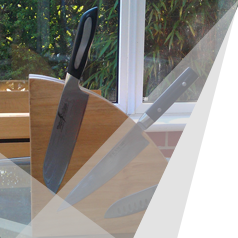Every time you open your fridge, as regular as clockwork, you are greeted by the welcoming glow of the light coming from somewhere at the back of your appliance. Unarguably an incredibly useful feature, that, as technology has progressed has seen the functionality and performance increase to super-efficient LED lights that are turned on and off by a reed switch, as if by magic.
All well and good, but not if you don’t want your fridge or freezer light to turn on automatically when you open the door. Why would you not want the light on your fridge to turn on when you open the door you might ask – a population of 250,000 Jewish people in Britain would be able to tell you. Here we explain more…
The Sabbath
Observed by Jewish people every week, the holy day known as the Sabbath begins at nightfall on Friday and lasts until nightfall on Saturday. Jewish law prohibits any form of work on the Sabbath and many believe this to include turning on and off electronic devices, which includes the light in your fridge.
In older fridges, this would not have been a problem as they predominantly work on a mechanical switch, that when compressed turned the light off. However, modern fridges more often than not will work using a hidden reed switch and a magnet in the frame of the door which operates the switch and turns the light off.
What is a reed switch and how does one work?
A reed switch is an electromagnetic switch that is made of two ferrous reeds encased within a small glass tube-like envelope, which turns on or off when placed within a magnetic field. The switch effectively works like a gate, or a bridge, in an electric circuit so when the two reeds are in contact, electricity can flow around the circuit operating a device.
There are two fundamental types, ‘normally open’ and ‘normally closed’. In a normally open switch, the two reeds, which are made out a ferrous material such as a nickel-iron alloy are positioned so that they are not touching. When a magnet is moved close to the switch, it pulls one of the reeds towards the other so that they are touching, and therefore completing the circuit. Remove the magnet and the reeds return to their original position breaking the circuit.
A normally closed switch works in the opposite way, when no magnetic field is present the reeds are in full contact, the electric circuit is complete and the device is ‘on’. When a magnet is moved close to a switch, or the switch close to a magnet, the reeds repel one another and split apart, breaking the circuit. This is the type that is used in modern refrigerators, when the door is shut a magnet in the frame of the door is moved close to the reed switch and the magnet forces the reeds apart, turning the light off.
 How to stop your fridge light coming on
How to stop your fridge light coming on
It is really simple to trick your fridge into thinking that the door is permanently shut, preventing the light from coming on when the door is opened. Although every model of fridge is different, the principle is the same, all you need to do is to place a reasonably strong magnet on to your fridge, close to the position where the magnet in the door meets the frame. Finding the location of the magnet in the door is the tricky part but this can be done with a paperclip and a bit of patience. In the photo you can see where Robert from north-west London placed two 20mm x 6mm x 1.5mm N42 neodymium magnets on his Liebherr SBSes7523 fridge-freezer to achieve the desired effect.
Have you tried this for yourself? Send a photo to marketing@first4magnets.com showing where you have placed magnets and include the make and model of your fridge and we will upload it to this article for others to refer to. Here are some photos from other successful applications:
 |
 |
| Model: Liebherr SBSes7523 | Model: Bosch KGN39VW31G |
Got a question? Contact our technical experts on 01777 874520.


